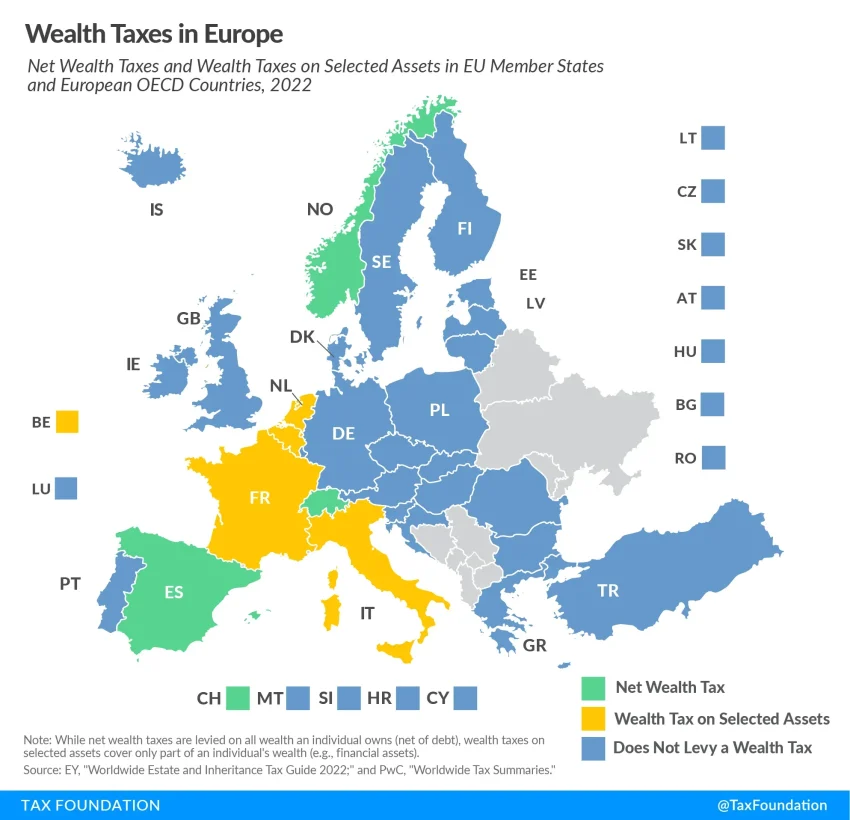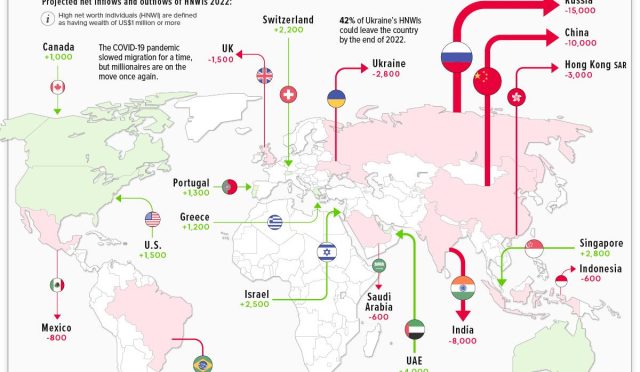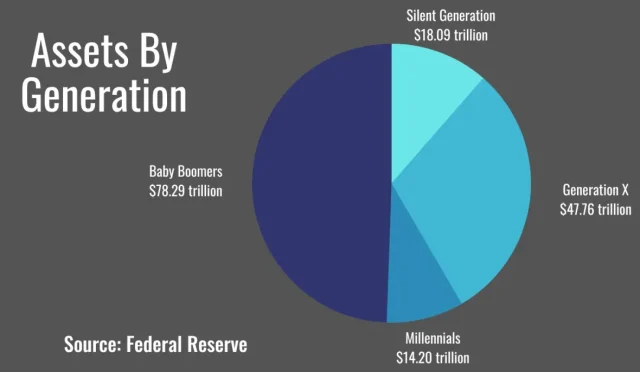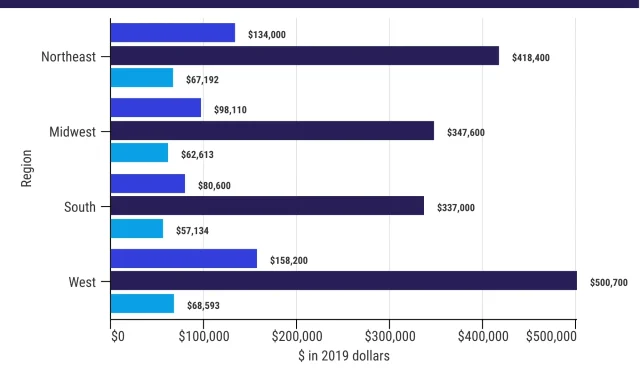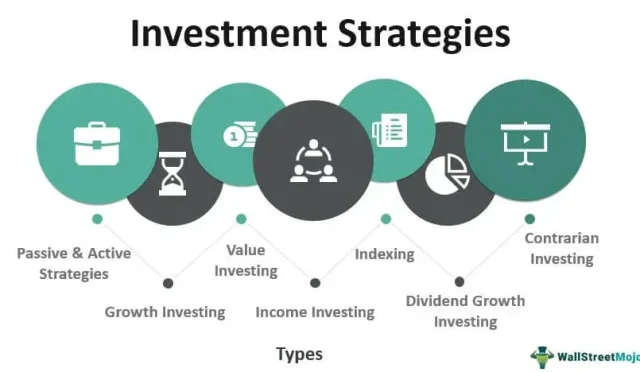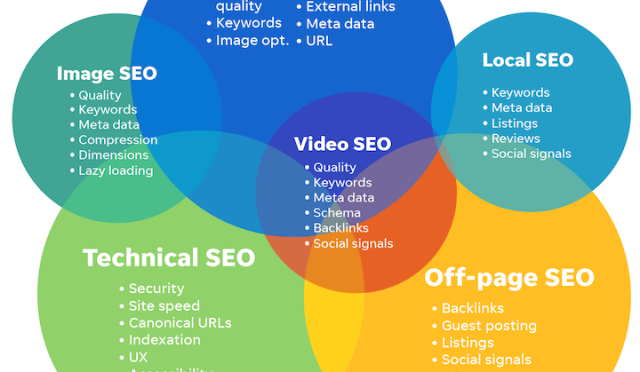Wealth tax has emerged as a central topic in the ongoing debate about economic equity, particularly in relation to child poverty. First Minister Eluned Morgan has been vocal in her calls for wealthier individuals to contribute more through taxation policies to help eradicate this pressing issue. In a recent foreword for a document advocating for the removal of the benefits cap, Morgan highlighted the urgent need for bold fiscal strategies that ensure children in Wales are not left behind. The Labour Party, alongside influential figures like former Prime Minister Gordon Brown, is rallying for changes that would enhance social security and alleviate the financial strains often faced by families. As the Labour conference approaches, the push for a wealth tax and the abolition of detrimental policies like the two-child cap are set to take center stage, igniting conversations on how best to support vulnerable populations in society.
The concept of a wealth tax, often referred to as an asset tax or net worth tax, has gained traction among policymakers and advocates alike, especially in light of rising child poverty rates. Advocates argue that implementing such financial measures could significantly aid in addressing critical social challenges, including the dire issue of child welfare. Eluned Morgan’s stance reflects a growing sentiment that those with substantial assets should contribute more to create a more equitable society. The potential removal of policies like the benefits cap by key Labour figures further aligns with the objective of enhancing support for families. As discussions around taxation reforms evolve, the emphasis remains on creating effective strategies that can foster a healthier, more just economy for upcoming generations.
The Urgent Call for Wealth Tax to Address Child Poverty
The pressing issue of child poverty has reached alarming levels, prompting First Minister Eluned Morgan to advocate for a wealth tax aimed at the richest individuals in society. By increasing taxes on the affluent, the government can allocate vital resources towards eradicating child poverty. In her foreword to the document “Labour Works: Local Action on Child Poverty,” Morgan emphasizes the necessity of making bold choices in taxation policies that prioritize the well-being of children. She aligns this stance with former Prime Minister Gordon Brown’s vision of redirecting wealth towards helping the vulnerable, ensuring that no child goes hungry in one of the wealthiest nations in the world.
Moreover, the call for a wealth tax is gaining momentum, with notable voices within the Labour Party, including Lord Kinnock and Secretary for Social Justice Jane Hutt, echoing these demands. Hutt has been particularly vocal about removing the detrimental two-child benefits cap that has exacerbated child poverty since its inception. The Labour leadership, under the pressure of upcoming conferences and growing public sentiment, is urged to take decisive action to reform taxation policies that could provide substantial relief to families struggling to make ends meet.
Reassessing Social Security Policies to Combat Child Poverty
The Labour Party’s commitment to fighting child poverty also involves a reevaluation of current social security policies. With Secretary for Social Justice Jane Hutt at the forefront, there are tangible proposals aimed at dismantling the two-child cap on benefits. This policy change is projected to lift hundreds of thousands of children out of poverty, as it targets support where it’s needed most. Hutt’s assertion reflects a broader understanding within the party that social safety nets must evolve to meet the changing dynamics of family structures and economic realities.
As Eluned Morgan pointed out, the Welsh government’s child poverty strategy is undergoing a significant refresh to quantify its impact. This strategic reassessment is imperative, especially in light of previous criticisms regarding the failure to meet past poverty reduction targets. By actively seeking engagement at the upcoming Labour Party conference, leaders hope to spark discussions that will illuminate effective measures to reform social benefits and ensure that support systems are robust and reflective of the community’s needs.
Impact of Benefits Cap on Families and Child Poverty
The two-child benefits cap, introduced by the Conservative government, has become a focal point in discussions around child poverty. Critics argue that this policy disproportionately affects low-income families, pushing them further into financial insecurity. Eluned Morgan has pointed out that abolishing this cap is essential to fulfilling the moral obligation of supporting children in need. The burgeoning dialogue surrounding the cap highlights the intersection between taxation policies and the socioeconomic landscape, emphasizing that changes in government strategy are crucial in addressing the root causes of child poverty.
As the Labour Party prepares for critical discussions at the conference, the urgency to address the implications of the benefits cap is paramount. With voices from various constituencies rallying for reform, there is an increasing recognition that comprehensive social policies must focus on lifting families out of poverty. The ongoing debate is a testament to the collective desire for a system that not only supports but empowers children and their families, providing them with the necessary resources to thrive.
The Role of the Labour Party in Tackling Child Poverty
The Labour Party has historically positioned itself as a champion of social equality and justice. In the current political climate, the party’s commitment to tackling child poverty has never been more critical. As leaders like Eluned Morgan and Rachel Reeves advocate for a wealth tax and the removal of damaging policies like the benefits cap, their efforts underscore an urgency to rectify systemic inequities. This approach signals a shift in the political narrative, prioritizing the welfare of children over fiscal conservatism.
Furthermore, the Labour Party’s strategies are not only about immediate relief but also about implementing long-term solutions to eradicate poverty. This includes a thorough examination of taxation policies that affect different income brackets, ensuring a fair contribution from those who can afford it. By embracing proposals that directly combat child poverty, the Labour Party aims to restore faith in governmental support systems and actively work toward a future where every child has access to the basic necessities of life.
Eluned Morgan’s Vision for a Child Poverty-free Wales
Eluned Morgan’s vision for Wales revolves around the idea that no child should suffer from poverty, which is echoed in her calls for reforming existing welfare provisions and introducing a wealth tax. Her leadership reflects a commitment to addressing one of the most pressing issues faced by society today. By advocating for policy changes that promote equitable taxation and increased support for families, Morgan aims to ensure that Wales leads the way in combating child poverty with effective social strategies.
Morgan’s stance is further reinforced by her collaboration with key figures within the Labour Party, who share a unified goal of creating a robust safety net for the vulnerable. The comprehensive approach to social justice proposed in “Labour Works” highlights the necessity of combining grassroots activism and policy reform to change the current paradigms governing child welfare. This transformative vision not only seeks to alleviate immediate suffering but also aims to create a sustainable framework for future generations.
The Economic Arguments for Wealth Tax in Social Policy
The economic rationale behind a wealth tax is increasingly prominent in discussions about social policy reforms to combat child poverty. Proponents argue that redirecting funds from wealthier individuals to social programs can significantly uplift communities and create a more balanced economy. This perspective aligns with the views expressed by Eluned Morgan and other Labour leaders, who emphasize that it is imperative for those who have benefitted most from society to contribute fairly to its welfare.
Additionally, the wealth tax could serve as a crucial funding mechanism for essential services, including education, healthcare, and childcare – all vital elements in breaking the cycle of poverty. With child poverty heavily linked to broader economic disparities, introducing such taxes can be seen as not only a moral obligation but also as a strategic necessity to foster an inclusive economy that provides equal opportunities for all children, irrespective of their background.
The Labour Party Conference: A Platform for Change
The upcoming Labour Party conference in Liverpool presents a pivotal opportunity for shaping the party’s stance on child poverty and related social policies. With leaders like Eluned Morgan advocating for the abolition of the two-child cap and the introduction of a wealth tax, the conference serves as a platform for critical discussions on the future direction of the party’s social agenda. These conversations are essential for mobilizing public support and ensuring that child poverty remains a top priority on the political agenda.
This event is not just about policy; it represents a moment for the Labour Party to reconnect with grassroots supporters who seek meaningful change. By addressing child poverty openly and proposing concrete solutions, the party can demonstrate its commitment to social justice. Engaging with constituents at this level can help illustrate the real-world implications of current policies and foster a collective movement towards creating an equitable society.
Addressing Critiques: The Challenges of Policy Implementation
Despite the strong calls for reform, the Labour Party faces significant critiques regarding its ability to deliver on promises related to child poverty reduction. The historical context of unmet targets, such as ending child poverty by 2020, casts a shadow on current initiatives. Critics, including political opponents and some community advocates, challenge the feasibility of proposed measures like abolishing the two-child cap, labeling them as politically motivated rather than grounded in reality.
Eluned Morgan and her colleagues must address these challenges head-on to regain public trust. This involves providing clear, actionable plans that outline not just the benefits of policy changes but also how they will be funded and implemented. Transparency and accountability will be key in ensuring that the ambitious goals set by the Labour Party translate into real changes for families struggling with child poverty in Wales.
The Future of Child Poverty in Wales: A Call to Action
The future of child poverty in Wales hinges on decisive actions taken today. With calls from influential figures such as Eluned Morgan for a wealth tax and the elimination of restrictive benefits caps, there exists a rare opportunity for systemic change. This is not merely a political challenge; it is a moral imperative that calls for collective action from all stakeholders, including the government, community organizations, and citizens.
As Wales grapples with these pressing issues, it is vital that conversations about child poverty continue to evolve. Engaging diverse voices within the community can foster innovative solutions and create a comprehensive approach to tackling poverty. By coming together in support of policies that prioritize the needs of children and families, Wales can lay the groundwork for a future where every child has the opportunity to flourish.
Frequently Asked Questions
What is a wealth tax and how can it help end child poverty?
A wealth tax is a proposed tax on the value of owned assets such as property, stocks, and other investments. Advocates, including First Minister Eluned Morgan, suggest that revenue from wealth taxes can be utilized to fund programs aimed at eradicating child poverty, ensuring that children have access to essential resources and support.
How does the Labour Party’s stance on wealth tax relate to child poverty?
The Labour Party’s leadership, including figures like Eluned Morgan, supports implementing a wealth tax to help finance social programs designed to alleviate child poverty. They argue that wealthier individuals should contribute more to tackle issues such as the two-child benefits cap and enhance social justice initiatives.
What are the proposed taxation policies to address child poverty in Wales?
Proposed taxation policies to combat child poverty include introducing a wealth tax on high net worth individuals and removing the two-child cap on benefits. Eluned Morgan and other Labour members believe redesigning taxation policies can redirect funds to support families in need.
Why is the removal of the two-child cap significant in the context of wealth tax discussions?
Removing the two-child cap is significant as it directly relates to the overarching goal of reducing child poverty. Eluned Morgan advocates for this change in conjunction with wealth tax proposals, suggesting that the financial resources gained from wealthier individuals can help alleviate the burdens of families affected by this cap.
What has been the response from opposition parties regarding wealth tax proposals?
Opposition parties, such as Plaid Cymru and the Welsh Conservatives, have expressed concerns regarding wealth tax proposals, arguing that imposing higher taxes can burden taxpayers. They emphasize the need for careful consideration of the economic impact while discussing potential benefits from wealth taxes aimed at eradicating child poverty.
What are alternative funding sources for child poverty programs if wealth tax is not implemented?
If a wealth tax is not implemented, alternative funding sources may include taxation on industries such as gambling, as suggested by Chancellor Rachel Reeves. Additionally, reallocating existing budgetary funds and enhancing corporate taxes could also contribute to funding vital child poverty alleviation programs.
What impacts has the Welsh government had on child poverty through its existing policies?
The Welsh government’s initiatives, such as free school meals and targeted childcare programs, reflect their efforts to combat child poverty without a wealth tax. Despite criticisms regarding their previous child poverty targets, they continue to innovate strategies aimed at supporting vulnerable families.
How does Eluned Morgan plan to utilize wealth tax to improve social security policies?
Eluned Morgan plans to utilize wealth tax revenue to support reforms in social security policies, particularly aiming to eliminate the two-child benefits cap and to invest in programs that directly help families facing poverty, ensuring that resources are allocated effectively to those in need.
| Key Point | Details |
|---|---|
| Wealth Tax Advocacy | First Minister Eluned Morgan supports higher taxes on the wealthy to help end child poverty. |
| Removal of Two-Child Cap | There’s a push to abolish the two-child benefit cap, which has been criticized for exacerbating child poverty. |
| Support from Labour Leaders | Various Labour leaders, including Gordon Brown, advocate for making bold choices regarding wealth taxes. |
| Financial Implications | Removing the cap could cost around £3 billion, with suggestions to tax the gambling industry to fund it. |
| Criticism and Challenges | Critics from other parties, like Plaid Cymru and the Welsh Conservatives, raise concerns about the financial burden on taxpayers. |
| Welsh Government Initiatives | The Welsh government has initiated programs like free school meals and childcare to assist families in need. |
Summary
In addressing the issue of wealth tax, First Minister Eluned Morgan has emphasized the need for wealthier individuals to contribute more to end child poverty in Wales. Her support for the removal of the two-child benefit cap highlights a growing consensus among Labour leaders to tackle this urgent social issue. As the government prepares for important discussions at the Labour Party conference, the focus remains on ensuring that tangible measures are implemented to support families and eradicate child poverty.

